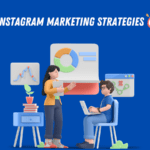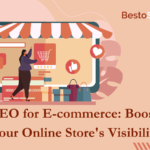In the ever-evolving digital marketing landscape, social media has become a vital platform for businesses to connect with their target audience and drive sales. While the traditional function of social media was to build brand awareness and engage with customers, it has now expanded to include e-commerce integration. This paradigm shift has created exciting opportunities for businesses to boost online sales and enhance their digital presence. In this blog, we will explore the key strategies and best practices for integrating e-commerce into your social media strategy to optimize your online business and reach new heights of success.
The Changing Role of Social Media in E-commerce
Social media has come a long way from just a platform for social interactions and brand promotion. Today, it has emerged as a powerful e-commerce tool, and businesses are leveraging this transformation to increase their online sales. Several factors have contributed to this shift:
- Shoppable Posts and Tags: Social media platforms like Instagram and Facebook have introduced features that allow businesses to tag and promote their products in posts and stories. This seamless integration between social media and e-commerce websites streamlines the shopping process for users.
- Influencer Marketing: Social media influencers have a significant impact on their followers. By collaborating with influencers in your niche, you can effectively market your products or services and drive more traffic to your e-commerce site.
- User-Generated Content: Encouraging users to create and share content related to your products can be a powerful way to showcase social proof. This type of content can help in increasing trust and credibility.
- Social Advertising: Platforms like Facebook and Instagram offer advanced advertising options that allow you to target specific demographics and interests, making your advertising campaigns more effective.
- Customer Service and Engagement: Social media also serves as a channel for providing customer support and engaging with your audience, which can have a direct impact on your e-commerce sales.
Key Strategies for Integrating E-commerce into Your Social Media Strategy
Now that we understand the changing role of social media in e-commerce let’s dive into some key strategies to integrate e-commerce into your social media marketing efforts effectively.
- Choose the Right Social Media Platforms
Not all social media platforms are created equal, and each caters to a specific audience. It’s crucial to identify where your target audience spends most of their time and focus your efforts on those platforms. For example:
- Instagram is a visual platform perfect for showcasing visually appealing products through images and videos.
- Facebook is versatile and offers various ad formats to reach a broad audience.
- Pinterest is excellent for businesses with visually engaging and creative products.
- LinkedIn is more suited for B2B e-commerce and targeting a professional audience.
- Optimize Your Social Profiles
Your social media profiles serve as an extension of your e-commerce website. Ensure that your profiles are complete, up-to-date, and visually appealing. Use high-quality images and a consistent brand identity to build trust with your audience.
- Create Shoppable Content
On platforms like Instagram, utilize shoppable posts and stories to showcase your products. This feature allows users to click on the product tags and be directed to the product page on your e-commerce website. Make sure your product descriptions and images are compelling and informative.
- Collaborate with Influencers
Influencer marketing is a powerful strategy for e-commerce businesses. Find influencers who align with your brand and product niche and collaborate with them to promote your products to their engaged followers. Influencers can create authentic content that resonates with their audience and drives traffic to your e-commerce site.
- User-Generated Content
Encourage your customers to share their experiences with your products on social media. Repost and share their content on your profiles to build trust and show that real people love your products. User-generated content is a form of social proof that can significantly impact your e-commerce sales.
- Paid Advertising
Leverage the advertising features on social media platforms to target specific demographics and interests. Set clear objectives for your ad campaigns, whether driving website traffic, increasing sales, or raising brand awareness. Regularly monitor and adjust your ad campaigns based on performance metrics.
- Consistent Branding and Messaging
Maintain a consistent brand identity and messaging across all your social media platforms and e-commerce websites. A cohesive brand image helps customers recognize and trust your brand.
- Customer Service and Engagement
Don’t underestimate the importance of engaging with your audience on social media. Respond to comments, messages, and inquiries promptly. Providing excellent customer service on social media can lead to positive reviews, recommendations, and increased sales.
- Track and Analyze
Use analytics tools provided by social media platforms to track the performance of your posts and campaigns. Monitor key metrics such as engagement, click-through rates, conversion rates, and revenue generated from social media. This data will help you refine your strategy and make data-driven decisions.
In conclusion, as the digital marketing landscape continues to evolve, integrating e-commerce into your social media strategy is no longer an option but a necessity for businesses looking to thrive in the online marketplace. The changing role of social media in e-commerce, from shoppable posts and influencer marketing to user-generated content and advanced advertising options, offers many opportunities to boost online sales and engage with your target audience. By implementing the key strategies outlined in this blog, you can maximize the potential of your social media marketing efforts.
Remember that a consistent brand identity, excellent customer service, and data-driven decision-making are crucial to success in this dynamic arena. With the right approach, your business can reach new heights of success and become a leader in the digital landscape. For expert guidance and assistance in integrating e-commerce into your social media strategy, consider consulting the professionals at BestoSEO Digital Marketing Agency in Thane, Mumbai.











